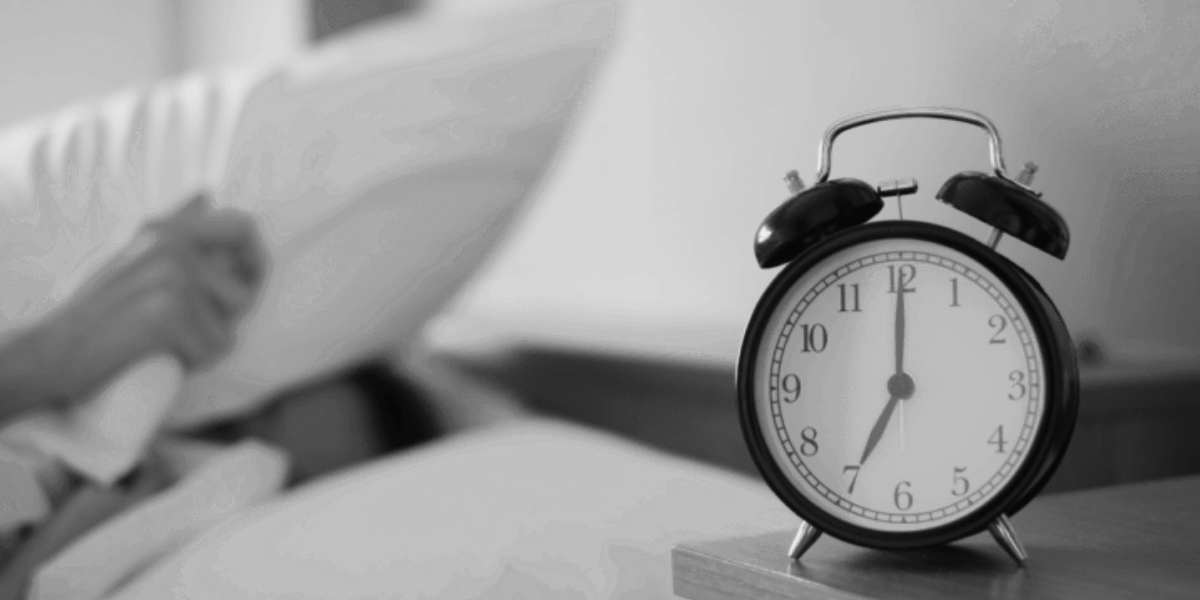According to a study, those who were forced awake had a morning blood pressure surge that was 74% greater than those who awoke naturally.

When alarms negatively impact our health, causing both physical and mental health issues, what are the solutions for waking up? (Creative Commons)
When staying up late at night and needing to rush for a morning class or catch the metro to work, we set an alarm to wake us up. However, being jolted awake to the blaring sound of the alarm in the morning is not only annoying but also poses health risks.
Morning alarms can have negative effects on health, particularly on the heart. Research indicates that waking up abruptly to the sound of an alarm can lead to a spike in blood pressure (BP) and heart rate, potentially increasing the risk of health issues like heart attacks or strokes.
According to a study, those who were forced awake had a morning BP that was 74 percent greater than those who awoke naturally.
The study found that being forced awake, like by a phone’s alarm, contributed to this surge, which was more pronounced when there was little sleep beforehand.
This surge could activate the sympathetic nervous system, causing the heart to pump harder and stronger, leading to fatigue, shortness of breath, anxiety, neck stiffness, and, in severe cases, nosebleeds and headaches.
The study also suggested that adults with cardiovascular diseases might experience more adverse effects from this early-morning BP surge when they got little sleep and were jolted awake.
Also, the sudden awakening triggered stress hormones like cortisol and adrenaline, disrupting the body’s natural sleep cycle and causing a phenomenon known as “sleep inertia”, which could leave individuals feeling groggy and disoriented.
Additionally, setting alarms to wake up could negatively impact mental health or mood, as sleep plays a significant role in emotional regulation and mood stability.
Interrupting sleep with an alarm could leave one feeling irritable, stressed, and anxious, which could indirectly impact their heart health.
When alarms negatively impact our health, causing both physical and mental health issues, what are the solutions for waking up?
“Sleeping for less than five hours is an independent risk factor for high BP, diabetes, stroke, and heart attack. In addition, if sleep is abruptly stopped with an alarm, this risk multiplies,” Hyderabad-based neurologist Dr Sudhir Kumar told South First.
Firstly, maintaining a consistent bedtime was crucial, he suggested. By doing so, waking up naturally would become more manageable, he explained.
“The challenge arises when we deviate from our sleep schedule, attempting to rise early to address various tasks, and resorting to alarms to ensure we wake up on time,” said Kumar.
“Prioritise seven to eight hours of sleep,” he advised, explaining that adequate sleep duration was crucial for overall health and well-being.
Sleeping for less than seven to eight hours could increase the risk of various health issues, including high BP, diabetes, stroke, and heart attacks, said the neurologist.
Also, consistently getting enough sleep supported proper cognitive function, mood regulation, and immune function, he added.
“If you are sleeping for a lesser duration, try not to use an alarm to wake up,” suggested Kumar. Abruptly interrupting sleep with an alarm could disrupt the natural sleep cycle, leading to sleep fragmentation and grogginess upon waking.
Allowing yourself to wake up naturally can help ensure that you complete sleep cycles and feel more refreshed upon awakening.
Sudhir Kumar also noted that if one must use an alarm, “use pleasant sounds such as music of a song or bird’s chirping”.
In a study conducted in 2020, it was discovered that waking up to melodic sounds, such as a hummable song, assisted individuals in avoiding sleep inertia.
“Try not to use an alarm on a few days (every week), such as during weekends, or when you have no important assignments during early mornings,” said the neurologist.
Sudhir Kumar also pointed out that when examining our sleep patterns, researchers observed two distinct phases — light sleep and deep sleep, each lasting approximately 90 minutes.
“Essentially, each sleep cycle consists of 60 minutes of light sleep followed by 30 minutes of deep sleep. Consequently, it’s easier to awaken someone during the light sleep phase than during deep sleep,” he explained.
Thus, he suggested that if bedtime was 11 pm, setting an alarm during the light sleep phase — ideally after 5 am — would allow for the completion of four sleep cycles.
“We enter another light sleep phase between 5-6 am. Setting the alarm during this window facilitates a smoother awakening compared to setting it between 6-6.30 am, when deep sleep predominates,” said Sudhir Kumar.
Setting the alarm according to the light-sleep cycle would reduce feelings of grogginess and abruptness compared to setting it in the deep-sleep phase. This strategy was particularly effective for individuals with regular sleep patterns.
However, for those with disrupted sleep patterns or sleep disorders, this approach might not yield the same benefits. Additionally, the adverse effects of alarms were primarily attributed to the abruptness of awakening, especially from deep sleep phases.
Now, the question is: What are the natural ways one can wake up? “If possible, allow natural light to enter your room through the windows. This will help in reducing melatonin secretion and help you wake up naturally,” said Sudhir Kumar.
In a study conducted in 2021, researchers discovered that exposure to light in the morning signalled the body to decrease its production of melatonin, aiding in the process of waking up and remaining alert.
Meanwhile, spending time outdoors during the day could help regulate one’s circadian rhythm and improve sleep quality.
Also, incorporating natural light into the morning routine could help synchronise one’s body’s internal clock, leading to improved sleep quality and overall well-being.
Other options include:
(Edited by Arkadev Ghoshal)

Jul 26, 2024

Jul 26, 2024

Jul 26, 2024

Jul 26, 2024

Jul 26, 2024

Jul 26, 2024